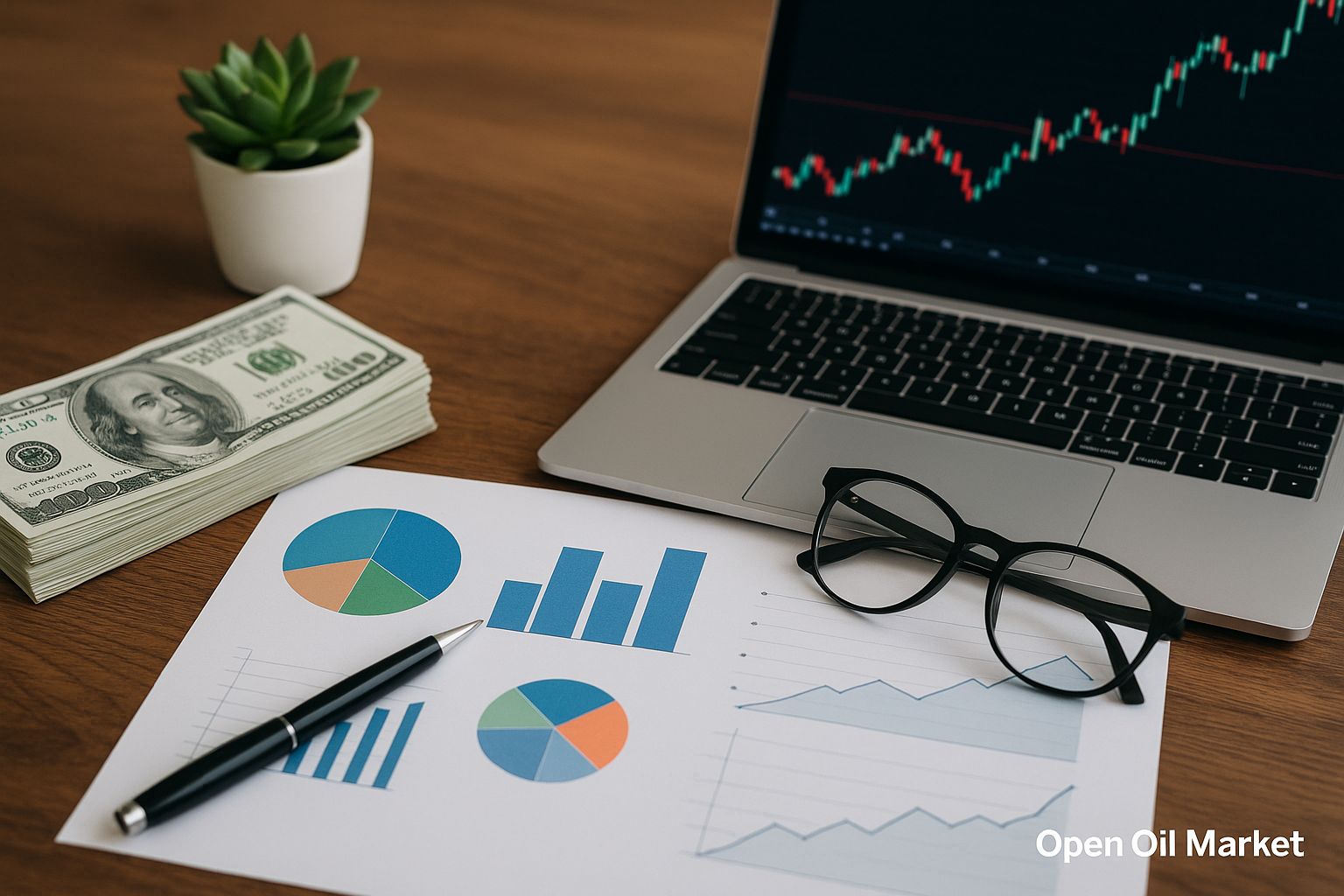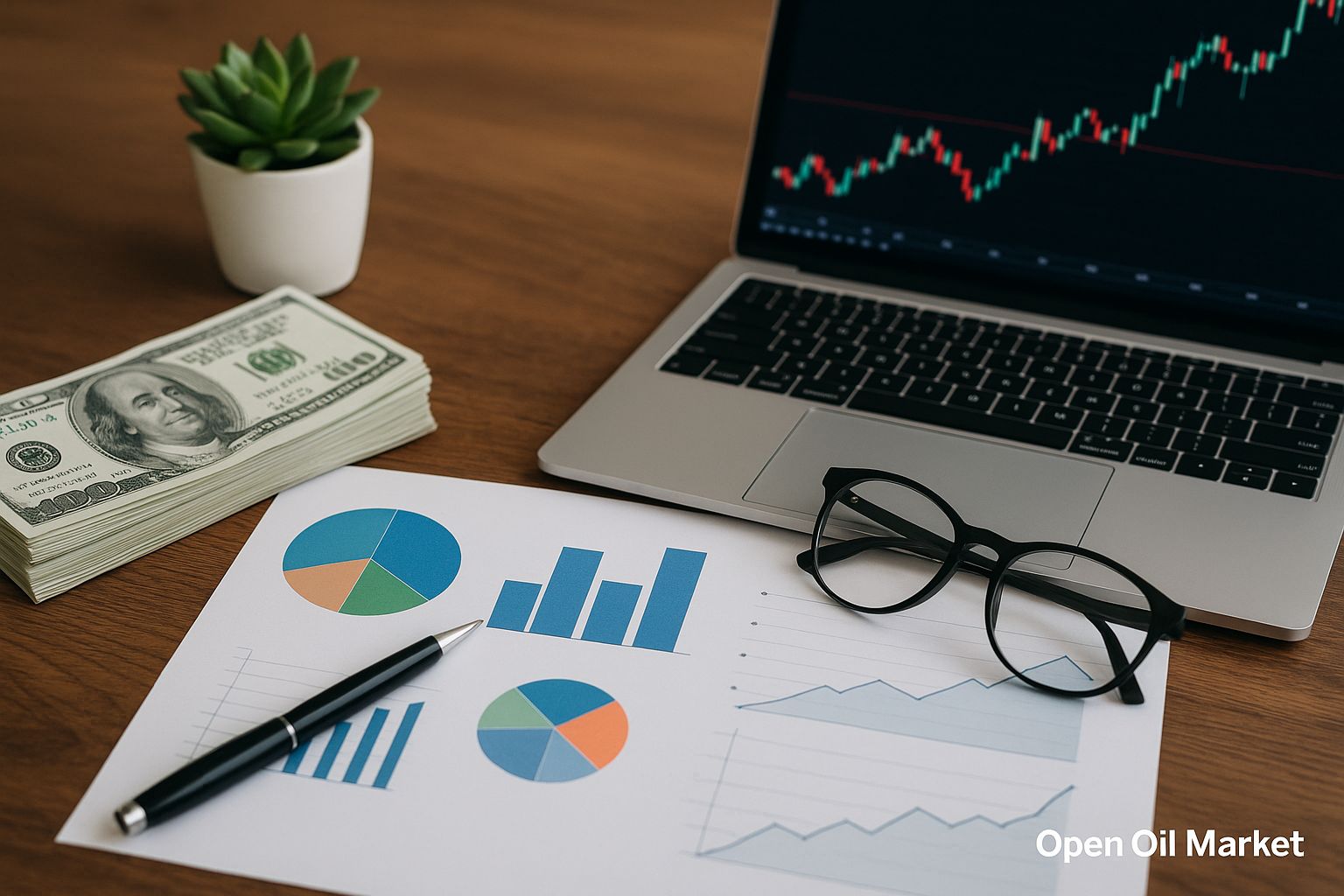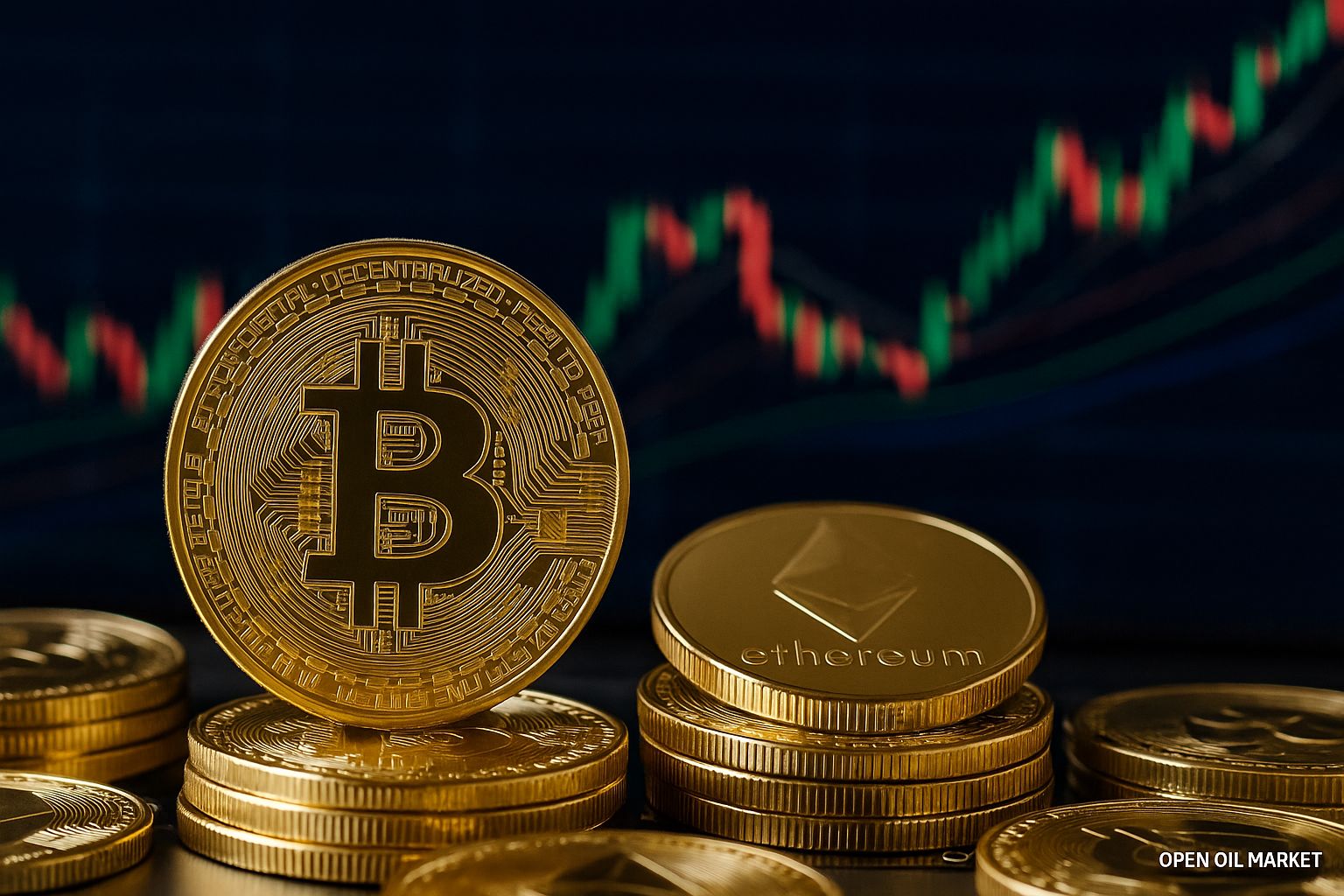
Startup and Venture Investment News as of August 20, 2025: Mega-funds, Record AI Rounds, IPOs, M&A Deals, and Growth of Fintech and Biotech. Insights for Venture Investors and Funds.
As of late August 2025, the global venture capital market continues its confident recovery after a prolonged downturn. Investors worldwide are actively funding technology startups again: record deals are being struck, and companies' plans to go public are back in the spotlight. Major funds and corporations have resumed significant investments and are launching new venture programs, while governments across various countries are ramping up their support for innovative businesses, striving to keep pace in the global technological race.
Analysts estimate that the first half of 2025 is the most successful period since 2021 in terms of total venture investments. In the U.S. and Canada alone, startups raised about $145 billion during this period (+43% year-on-year) — a record half-year figure for the last three years. The overall influx of capital into the venture market has significantly increased, largely due to a series of mega-deals in the artificial intelligence sector.
Venture activity is now covering all regions — from Silicon Valley and Europe to Asia, the Middle East, Africa, and Latin America. North America is experiencing particularly high dynamics (accounting for up to 70% of global investments, with a significant portion directed toward the AI sector), while the Middle East is witnessing a significant surge (startup investments in the region reached ~$2.1 billion in the first half of 2025, up 134% year-over-year). In Europe, the landscape is undergoing restructuring: Germany has outpaced the UK in venture investments for the first time in a decade, reflecting the strengthening of continental startup ecosystems.
In Asia, the situation is uneven: funding for startups in China remains weak (with a regional decline of about 33% year-over-year), while India, Israel, Southeast Asia, and Gulf countries are experiencing growth and attracting increasing amounts of capital. Local markets (such as those in the CIS countries) are striving to ride their own wave of uplift despite external constraints. Overall, a new global venture boom is taking shape, although investors are still approaching deals selectively and cautiously.
Below are the key events and trends defining the current agenda of the venture market as of August 20, 2025:
- The return of mega-funds and large investors. Leading players are forming record venture funds and increasing investments, once again saturating the market with capital and strengthening risk appetite.
- Mega rounds of financing and new "unicorns." Unprecedented volumes of investments are driving startup valuations to record levels, primarily in the field of artificial intelligence.
- Revival of the IPO market. Successful public offerings of technology companies and new applications confirm that the long-awaited "window" for exits remains open.
- Diversification of sector focus. Venture capital is being directed not only into AI but also into fintech, climate projects, biotechnology, defense, and even crypto startups, broadening the market's horizons.
- A wave of consolidation and M&A deals. Major mergers, acquisitions, and strategic investments are reshaping the industry's landscape, creating new opportunities for exits and scaling firms.
- Global expansion of venture capital. The investment boom is sweeping new regions — from Gulf countries and South Asia to Africa and Latin America — forming their own technological ecosystems.
- Local focus: Russia and the CIS. Despite restrictions, new funds and initiatives are emerging to develop local startup ecosystems, increasing investor interest in the region.
The Return of Mega-funds: Big Money Back in the Market
The largest investment players are triumphantly returning to the venture scene, signaling a renewed appetite for risk. The Japanese conglomerate SoftBank, after a period of dormancy, has come back to the forefront, announcing the establishment of Vision Fund III, with an estimated volume of ~$40 billion, focused on advanced technologies (with an emphasis on artificial intelligence and robotics). At the same time, sovereign wealth funds from Gulf countries are becoming active: they are pouring billions into innovative projects and developing state mega-programs to support the startup sector, establishing their own tech hubs in the Middle East. Additionally, dozens of new venture funds (including corporate) are emerging globally, attracting significant institutional capital for investments in high-tech sectors.
Prominent Silicon Valley investors are also ramping up their presence. The American venture sector has accumulated unprecedented reserves of uninvested capital ("dry powder") — hundreds of billions of dollars ready to go as confidence returns to the market. For example, the firm Andreessen Horowitz announced the raising of a new mega-fund of about $20 billion, fully focused on investing in AI companies — one of the largest in the industry. The influx of "big money" is filling the startup market with liquidity, providing resources for new rounds and supporting the growth of promising companies' valuations. The return of mega-funds and large institutional investors not only intensifies competition for the best deals but also instills confidence in the industry regarding further capital inflows.
Mega-rounds and New "Unicorns": Investments Hit Record Levels
The artificial intelligence sector continues to be the main driver of the current venture upswing, demonstrating record financing volumes. Investors are directing colossal resources into the most promising projects, elevating startup valuations to unprecedented heights. For instance, the American company Databricks secured a new round in series K, increasing its valuation by 61% — to over $100 billion; these funds will be used for the development of AI products and acquisitions. Elon Musk's startup xAI has raised approximately $10 billion in total (including venture and debt financing) and reached an estimated valuation of around $100 billion, entering the ranks of the world's most valuable AI companies. Meanwhile, OpenAI received another tranche of around $8 billion at an approximate valuation of $300 billion — both of these mega-rounds were substantially oversubscribed, highlighting the frenzy surrounding industry leaders. Other players are also keeping pace: the Canadian AI startup Cohere raised $500 million in August at a valuation of ~$6.8 billion, confirming its unicorn status and investors' interest in new contenders.
The current investment boom is birthing a new wave of "unicorns." According to some estimates, nearly 500 private companies in the AI sector are currently valued at over $1 billion (their combined value approaches $2.7 trillion), with around 100 of them established after 2023. Additionally, more than 1300 AI startups are valued at no less than $100 million. While experts warn of the risks of overheating, investors' appetite for artificial intelligence projects has yet to wane.
The IPO Market Revives: The "Window" for Exits is Open
The global market for initial public offerings (IPOs) has noticeably revived after a prolonged pause and continues to gain momentum. In Asia, Hong Kong has initiated a new wave of IPOs: several large technology companies have successfully gone public recently, raising several billion dollars in total. For example, a leading battery industry player raised approximately $5 billion in its IPO, demonstrating that investors in the region are once again ready to actively participate in public offerings.
In the U.S., the situation on the IPO market has significantly improved as well. The fintech unicorn Chime debuted on the stock exchange in the summer, with its shares rising by approximately 30% on the first trading day. Following it, the design platform Figma conducted an IPO, raising about $1.2 billion at an estimated valuation of around $15-20 billion; its stock prices confidently surged in the first days of trading. In the second half of 2025, other well-known startups, including the payment service Stripe and several highly valued companies in the AI and SaaS sectors, are also preparing to go public. Even the crypto industry is keen to take advantage of the opened "window": the fintech company Circle successfully went public, and the cryptocurrency exchange Bullish has filed for a listing in the U.S. with a targeted valuation of around $4 billion. The revival of activity in the IPO market is crucial for the venture ecosystem: successful public exits allow funds to realize profitable exits and direct released capital into new projects, thereby supporting further industry growth.
Diversification of Investments: New Sectors on the Rise
In 2025, venture investments are covering an increasingly broader array of industries and are no longer limited to artificial intelligence alone. Following last year's downturn, there is notable revitalization in fintech: large funding rounds are taking place not only in the U.S. but also in Europe and emerging markets, fueling the growth of new financial services. Additionally, there is a heightened interest in climate and "green" technologies — these sectors are attracting record investments amid the global trend toward sustainability.
The appetite for biotechnology is also returning: the emergence of promising medical developments and healthtech platforms is again attracting capital as the industry recovers from a period of declining valuations. Furthermore, against the backdrop of increased attention to security, investors are more actively supporting defense and aerospace projects. A notable example is the American company Anduril Industries: the startup raised $2.5 billion, doubling its valuation to ~$30 billion, underscoring the high demand for high-tech defense solutions. A partial recovery of trust in the crypto market is also becoming evident: some blockchain startups have resumed funding. Consequently, the expanding sector focus is making the startup ecosystem more resilient and reducing the risk of overheating in specific segments.
Consolidation and M&A Deals: Larger Players on the Rise
Over-inflated valuations of startups and fierce competition for markets are pushing the industry toward consolidation. Major mergers and acquisitions are again taking center stage, reshaping the balance of power in the technology sector. For instance, Google has agreed to acquire the Israeli cybersecurity startup Wiz for approximately $32 billion — a record amount for the Israeli tech industry. Another example is an American software producer's announcement of acquiring a European AI startup, strengthening its presence in the new market.
Such mega-deals illustrate the desire of tech giants to secure key developments and talent. Many corporations prefer to acquire an innovative project rather than develop similar technologies from scratch. Overall, the surge in acquisition activity indicates market maturation: established startups are merging or becoming attractive to major players, while venture investors are given opportunities for long-awaited profitable exits. The wave of M&A deals opens new pathways for capital exit, allowing funds to realize income and facilitating the emergence of larger companies capable of competing successfully on a global level.
Global Expansion of Venture Capital: New Markets Gaining Strength
The venture boom of 2025 is taking on a truly global scale, reaching markets that were recently on the periphery of the technology scene. The Middle East, for example, is forming its own tech hubs: Gulf countries are actively financing local startups and attracting international capital into their ecosystems. South Asia is also experiencing a rise: India and Southeast Asian nations are registering record inflows of venture investments and an increase in the number of unicorns. Rapidly developing startup clusters are also emerging in Africa and Latin America — from fintech centers in Nigeria to e-commerce successes in Brazil.
Large venture funds are now closely monitoring promising projects worldwide — from Singapore and Dubai to Nairobi and São Paulo — striving not to miss the next "diamond" of the technology scene. Founders from various countries are gaining unprecedented opportunities to attract capital, and the venture market is becoming increasingly international. New funds, accelerators, and support programs aimed at developing local ecosystems are being launched in different regions. Thus, the investment boom is spreading to new territories, integrating them into the global innovative economy.
Russia and the CIS: Local Initiatives Amid Global Trends
Despite external restrictions, active steps are being taken in Russia and neighboring countries to develop their own startup ecosystems in line with global trends. At the St. Petersburg International Economic Forum (SPIEF 2025), a new venture fund was announced with the participation of the state bank PSB, targeting a volume of about 12 billion rubles for investing in dual-use projects — from drones and AI to robotics. PSB acts as the anchor investor for this fund, also attracting private capital; even under sanctions, the market is seeking opportunities to finance priority technologies and nurture its own "unicorns."
At the same time, some regional startups are reaching new heights. For example, the Krasnodar foodtech project Qummy raised approximately 440 million rubles at a valuation of around 2.4 billion rubles, preparing for an IPO — this case demonstrates the seriousness of ambitious technological businesses in Russian regions. In Kazakhstan, a state fund called Qazaqstan Venture Group has been established with a volume of $1 billion to support AI startups and a new wave of technological projects. Additionally, in July 2025, Russian authorities softened restrictions for foreign investors: they are again allowed to acquire shares of Russian companies and freely repatriate capital. This step aims to revive international investments in the economy and venture sector, despite the geopolitical situation.
Individuals from CIS countries are already achieving global success, integrating into the global industry. For instance, the AI startup Perplexity, founded by a Belarusian entrepreneur and based in the U.S., recently raised an additional ~$100 million, increasing its valuation to ~$18 billion. Another example is the Dubai project Xpanceo, founded by a Russian and a Ukrainian: it secured approximately $250 million in a series A round at a valuation of $1.3 billion for developing "smart" AR contact lenses. These cases confirm that innovative projects with roots in the region can compete on the cutting edge of the global tech arena.
While the scale of the venture market in the CIS is still modest compared to the West, the foundation for future growth is currently being laid. Investors are shifting their focus to more mature projects with proven business models, and the government is expanding support — from developing IT education to creating a network of regional accelerators. Local startups aim to enter global value chains, leveraging strong competencies in high-tech niches (AI, big data, cybersecurity, etc.). Despite all challenges, Russia and its neighbors are gradually building their own venture landscape, hoping to eventually claim a deserving place in the global technological race.
Conclusions: Cautious Optimism and a Focus on Quality Growth
By the beginning of autumn 2025, sentiments in the venture industry remain cautiously optimistic. Record deals and successful IPOs instill confidence that the low point of the recent downturn has been surpassed; however, the lessons of previous years keep the market from excessive euphoria. Investors are now much more attentive to the quality of startups' growth and their ability to build sustainable businesses, favoring companies with proven business models and profitability indicators approaching break-even.
The significant influx of capital into AI, fintech, and cybersecurity bolsters confidence in the industry's further development. At the same time, funds are paying increased attention to diversifying risks and adopting a balanced approach to valuations. In the event of a favorable macroeconomic situation, the market could accelerate growth in the second half of the year. An important factor will be a combination of local potential (talents and projects from various countries) with access to global markets.
Overall, the news surrounding startups and venture investments at the end of August 2025 reflects a heightened interest in innovation combined with a pragmatic approach to investing. Venture funds and entrepreneurs are showing a readiness to collaborate: the former provide capital to promising projects, and the latter demonstrate real progress in technology development. The current situation allows for cautious optimism as we look forward to new technological breakthroughs and the continuation of the venture upswing.




